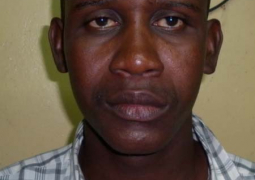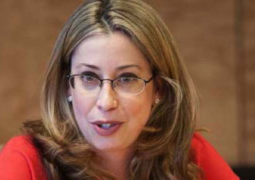The Director General of the National Agriculture Research Institute (NARI), Dr. Babucarr Jobe, Wednesday continued his testimony in the case involving former senior officials of the Ministry of Agriculture at the Brikama High Court before Justice Emmanuel Ahmadi.
The accused persons are Alhagie Bakary Trawally, former permanent secretary at the Ministry of Agriculture, Momodou Mbye Jabang, former program coordinator at the Ministry of Agriculture, Modou Ceesay, a businessman, Dr Amadou Sowe, former permanent secretary at the ministry of Agriculture, Kekoi Kuyateh, former deputy permanent secretary at the Ministry of agriculture, Dr Mustapha Ceesay, former deputy director general of NARI, Awa Sey Touray, former supplies officer at the Ministry of Agriculture, Seedy Jarju, and Yusupha Jawara.
They were charged with five counts of economic crimes, three counts of uttering false documents and two counts of negligence of official duties.
Jobe told the court that on 20 June 2011, Babucarr Njie was the Permanent Secretary No.1, while Adda Gaye was Permanent Secretary No.2, adding that PW1, Alfu Marong, was succeeded by Alhagie Bakary Trawally.
He added that page 18 of exhibit 3 was the last page of the experiment, but it was not signed as that was not a procedure for them, and the number of people who participated in this experiment was not less than ten.
Under cross-examination, Dr Jobe adduced that he was assigned to carry out an investigation, which he did and submitted the report under his name.
The aspect of the experiment carried out, among others, included managing crops, collecting essential data and analysis, he said, stating that among the people who participated in carrying out the experiment, two were soil scientists and the rest were agronomists and statisticians because they needed to execute the task assigned to them.
The witness under cross-examination told the court that experiment was conducted between April and July 2011, adding that April and May are more of the dry season in The Gambia.
He added that on 20 June 2011, there was no rain in Brikama, but in the other places there was rainfall, adding that he did not have the records as to how many times it rained in July and August 2011.
Dr Jobe further stated that they had rains but the cause of the crop failure was the terminal drought, due to the early ceasing of the rains in September.
The NARI DG also told the court that he personally wrote exhibit 3, but did not mention the source of water during the experiment, adding that he did not mention the frequency of the irrigation because it was constant, and could be known by the objective of the experiment.
He admitted that the maize crop was predominantly cultivated in the rainy season, but the best maize was cultivated during the dry season.
Jobe went further to explain that water was not a limiting factor of the experiment.
The objective of the experiment was not to evaluate the source of the water and it frequency of application on the crop, he said, admitting that ‘you cannot conduct an experiment without water.”
He added that water was important, but not the most important in the experiment.
Dr Jobe adduced that he had been conducting fertilizer trials on many crops since 1996, adding that if the fertilizer was good, it would be recommended countrywide, because in The Gambia they adopted a blanket recommendation system.
He admitted that soil type could affect the fertility of the fertilizer in the
He added that in exhibit 3, this fertilizer was not suitable for crop production in The Gambia for cereals, admitting that he did not comply with exhibit 1 because it was impossible due to both financial and human resource constraints.
The case continues on 16 July 2012.



